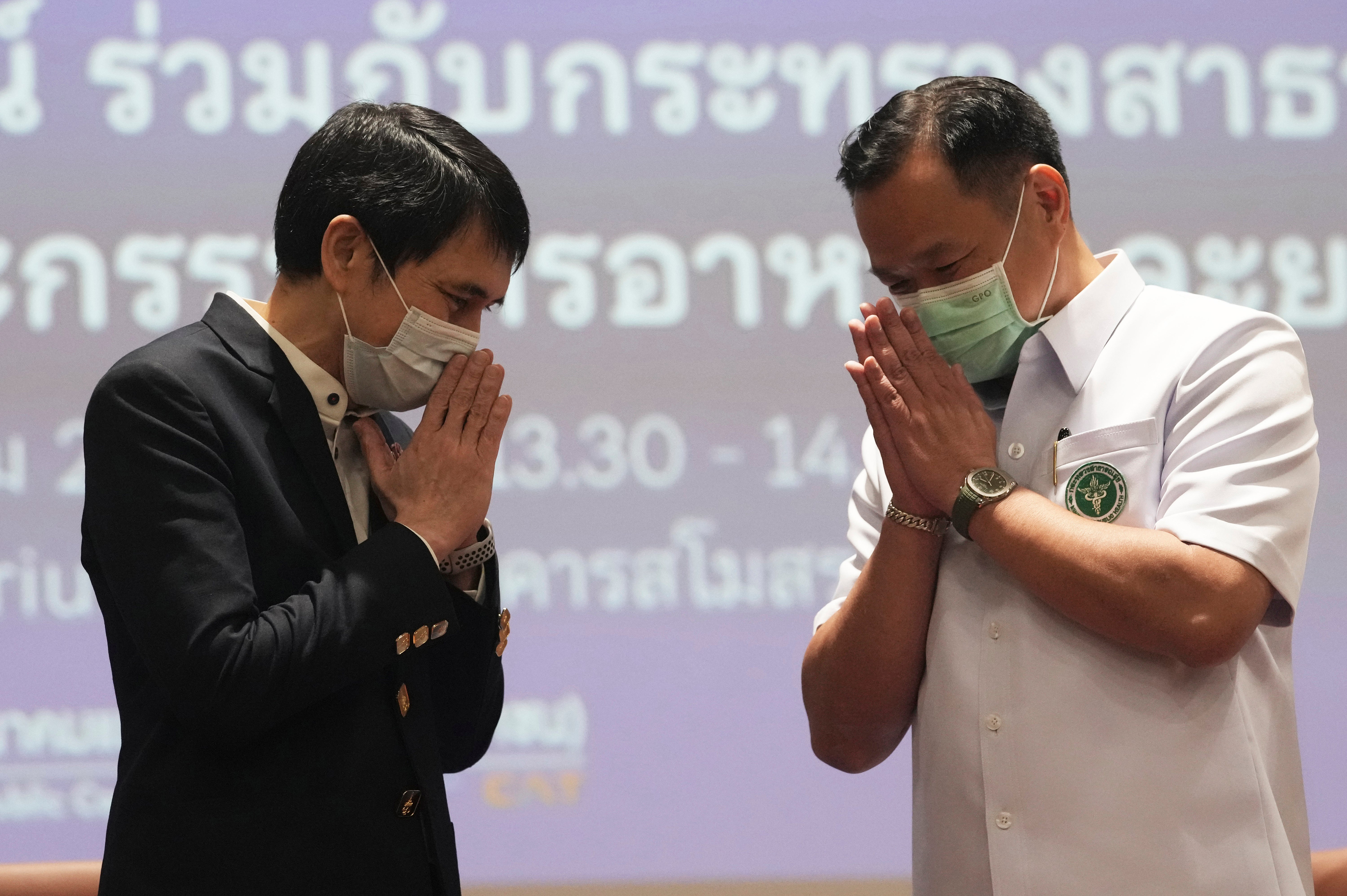Royal-backed Thai institute to import Chinese vaccine
A Thai research agency associated with the country’s royal family says it will purchase and import a coronavirus vaccine made by China’s Sinopharm, expanding the country’s options at a time when the government is facing criticism for the pace of its inoculation campaign

Your support helps us to tell the story
This election is still a dead heat, according to most polls. In a fight with such wafer-thin margins, we need reporters on the ground talking to the people Trump and Harris are courting. Your support allows us to keep sending journalists to the story.
The Independent is trusted by 27 million Americans from across the entire political spectrum every month. Unlike many other quality news outlets, we choose not to lock you out of our reporting and analysis with paywalls. But quality journalism must still be paid for.
Help us keep bring these critical stories to light. Your support makes all the difference.
A Thai research agency associated with the country’s royal family said Friday that it will purchase and import a coronavirus vaccine made by China s Sinopharm, expanding the country's options at a time when the government is facing criticism for the pace of its inoculation campaign.
Dr. Nithi Mahanonda, secretary general of the government-funded Chulabhorn Royal Academy, said Beijing-based Sinopharm had committed to delivering an initial shipment of 1 million doses in June, although the price was still being negotiated. He said it would be sold at cost to organizations in the public and private sectors.
The distribution channel will be separate from the government's free vaccination program, which has faced criticism because of its inadequate supplies and perceived disorganization as the country faces its largest surge of the pandemic.
So far, just about 3.3% of the country’s roughly 69 million people have received at least one vaccine dose. The government has secured just 7 million vaccine doses in total.
The government has been negotiating to get more supplies that would allow it to fully inoculate about 70% of the population by the end of the year. Its plans earlier this year would have allowed only about 45% of the population to be inoculated.
The Chulabhorn Royal Academy granted itself the authority to procure coronavirus vaccines, medicines and medical equipment under a notice published late Wednesday in the royal gazette. The academy is named after Princess Chulabhorn, sister of King Maha Vajiralongkorn
The announcement came as a surprise for many in the country, where private hospitals have been pushing the government for months to cut red tape and allow them to import vaccines through their own sources.
It was also surprising as the Sinopharm vaccine was not approved for use in Thailand until Friday, when the country's Food and Drug Administration said it was cleared for emergency use.
It is the fifth vaccine to approved for use in Thailand, though only vaccines from AstraZeneca and Sinovac are currently being used. The others approved but not yet imported are the Johnson & Johnson and Moderna vaccines.
So far, the country’s state-owned energy firm PTT and the Federation of Thai Industries have already contacted the Chulabhorn Royal Academy to buy the Sinopharm vaccine, Nithi said.
Thai health authorities on Friday reported 3,759 new COVID-19 cases and 34 deaths, bringing the country’s totals to 144,976 infections and 954 deaths since the pandemic began
Around 80% of the total infections and 90% of deaths have come since April 1.
Thailand had been considered a success story last year for largely containing the virus, though at great economic cost, especially to its tourism sector when foreign visitors were largely banned from entering the country.
Subscribe to Independent Premium to bookmark this article
Want to bookmark your favourite articles and stories to read or reference later? Start your Independent Premium subscription today.